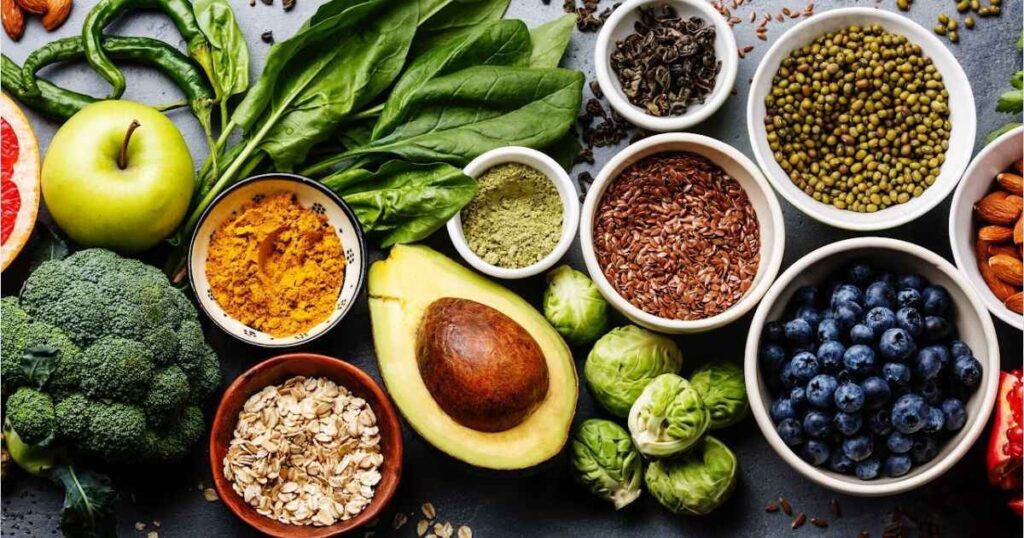Coconut oil is a versatile fat extracted from coconut meat. It’s solid at room temperature and melts when heated. This tropical oil is rich in medium-chain triglycerides (MCTs) and has a unique fatty acid profile.
Boasts some surprising potential health benefits. It might boost heart health, support weight loss, and nourish skin and hair. But there’s also controversy surrounding its high saturated fat content. Let’s dive in and uncover the truth about this popular oil.
This tropical wonder has taken the health world by storm, and for good reason. From kitchen to bathroom, seems to be everywhere these days. But what’s the real scoop on this versatile oil? Let’s dive into the surprising health benefits of separate fact from fiction.
Possible benefits
Has been touted as a miracle cure for just about everything. While we shouldn’t believe all the hype, there’s no denying that this tropical oil has some intriguing potential. From boosting heart health to nourishing your skin, coconut oil’s benefits are as diverse as they are fascinating.
But here’s the thing: not all coconut oils are created equal. When we talk about the health benefits of coconut oil, we’re usually referring to extra virgin. This minimally processed version retains more of the natural compounds that make so special. So, as we explore these potential perks, keep in mind that quality matters!
Read More: 10 Home Remedies to Get Rid of Dandruff Naturally
Increasing good cholesterol

When it comes to heart health, cholesterol is often painted as the villain. But did you know there’s such a thing as good cholesterol? It’s called HDL (High-Density Lipoprotein), and it’s like a tiny superhero in your bloodstream, fighting off the bad cholesterol (LDL) that can clog up your arteries.
Now, before you start guzzling by the gallon, let’s pump the brakes a bit. The research on cholesterol effects is still ongoing, and not all studies agree. Some folks worry about the high saturated fat in coconut oil. But here’s the twist: the type of saturated fat in behaves differently in our bodies compared to the saturated fats found in, say, a juicy steak.
Controlling blood sugar
If you’re watching your blood sugar levels, coconut oil might be worth a look. Some research suggests that the MCT oil benefits found in coconut oil could help improve insulin sensitivity. In simpler terms, it might help your body use insulin more effectively, which is great news for blood sugar control.
But don’t toss out your glucose meter just yet! While the potential for coconut oil for blood sugar control is exciting, we need more human studies to really nail down its effects. It’s also worth noting that coconut oil is still a fat, and all fats are calorie-dense. So if you’re adding coconut oil to your diet for blood sugar benefits, make sure you’re not unwittingly increasing your overall calorie intake.
A balancing act for your blood sugar?
Think of coconut oil as a potential teammate in your blood sugar management game, not a silver bullet. It might help, but it works best as part of a balanced diet and healthy lifestyle. Always chat with your doctor before making significant changes to your diet, especially if you’re managing a condition like diabetes.
Reducing stress
In our fast-paced world, who couldn’t use a little stress relief? Enter coconut oil, stage left. Some studies have shown that virgin coconut oil has antioxidant properties that might help combat oxidative stress in our bodies. This could potentially translate to reduced feelings of stress and anxiety.
But let’s keep it real: coconut oil for stress relief isn’t going to magically melt away all your worries. It’s not a replacement for proper stress management techniques or professional help if you’re struggling with chronic stress or anxiety. Think of it more as a supporting player in your overall wellness routine.
Shiny hair

Who doesn’t want luscious, shiny locks? Coconut oil for hair has been a beauty secret in tropical countries for centuries, and now the rest of the world is catching on. Unlike some other oils, coconut oil can penetrate the hair shaft, nourishing it from the inside out. This can lead to stronger, shinier, and more manageable hair.
Want to give it a try? Here’s a simple DIY coconut oil hair mask: Warm up about 2 tablespoons of coconut oil (more for longer hair) until it’s liquid but not hot. Massage it into your scalp and work it through to the ends of your hair. Wrap your hair in a warm towel and let it sit for 30 minutes to an hour before shampooing as usual. Hello, salon-worthy shine!
Healthy skin
When it comes to skincare, coconut oil is a multitasking marvel. Its moisturizing properties can help keep your skin soft and supple, while its potential anti-inflammatory effects might soothe irritated skin. Many people swear by coconut oil for skin as a natural moisturizer, makeup remover, and even as a gentle facial cleanser.
But here’s the catch: not everyone’s skin reacts the same way to coconut oil. Some folks find it too heavy or comedogenic (pore-clogging), especially for facial use. As with any new skincare product, it’s wise to do a patch test first and see how your skin responds.
Coconut oil face-off: Skincare myths vs. facts
Let’s clear up some confusion about coconut oil in skincare:
| Myth | Fact |
| Coconut oil is good for all skin types | While many benefit from coconut oil, it may not suit oily or acne-prone skin |
| Coconut oil can replace sunscreen | Coconut oil offers minimal sun protection; always use proper sunscreen |
| Coconut oil cures acne | It may help some, but can worsen acne for others |
| All coconut oils are equally good for skin | Extra virgin coconut oil is generally best for skincare |
Remember, when it comes to skincare, what works for your best friend might not work for you. Listen to your skin and adjust accordingly!
Fighting candida

Candida albicans, a type of yeast that lives in our bodies, can sometimes get out of control and cause infections. Here’s where coconut oil might lend a hand. Studies have shown that coconut oil has antifungal properties that could help combat candida overgrowth.
But before you start slathering coconut oil everywhere, remember that most of these studies were done in test tubes or on animals. We need more research to fully understand how effective coconut oil might be against candida in humans. If you’re dealing with a fungal infection, it’s always best to consult with a healthcare professional rather than self-treating.
Preventing liver disease
Your liver is like your body’s own personal filtration system, working tirelessly to process everything you eat and drink. Some animal studies have suggested that coconut oil might have protective effects on the liver, potentially helping to prevent or manage liver disease.
Now, before you start chugging coconut oil for coconut oil liver protection, let’s pump the brakes a bit. These studies are preliminary, and we need a lot more research, especially in humans, before we can make any solid claims. That said, the potential is intriguing and definitely worth keeping an eye on as more studies emerge.
Reducing asthma symptoms
Here’s a fascinating tidbit: some early research has looked at the potential of inhaling coconut oil to help reduce asthma symptoms. The idea is that the anti-inflammatory properties of coconut oil might help soothe inflamed airways.
But hold your horses! This doesn’t mean you should start breathing in coconut oil vapor. These studies are very preliminary, and inhaling any kind of oil can be dangerous if not done properly. If you have asthma, stick to your prescribed treatments and talk to your doctor about any new approaches you’re considering.
Improving satiety
Ever heard the claim that coconut oil can help you feel full and eat less? There’s some truth to it, but it’s a bit more complicated than that. The MCTs in coconut oil are processed differently by our bodies compared to other fats, and some studies suggest they might increase feelings of fullness.
However, it’s important to note that most of these studies used pure MCT oil, not coconut oil. While coconut oil does contain MCTs, it’s not the same as pure MCT oil. Also, remember that coconut oil is still high in calories, so adding it to your diet without cutting back elsewhere could lead to weight gain, not loss.
Dental health

Swishing oil around in your mouth might sound strange, but it’s actually an ancient practice known as oil pulling. And guess what? Coconut oil is a popular choice for this dental health technique. Some studies suggest that oil pulling with coconut oil could help reduce plaque, fight bacteria, and improve overall oral health.
Want to give it a try? Here’s how: Take about a tablespoon of coconut oil and swish it around in your mouth for 15-20 minutes (yes, it’s a workout for your mouth!), then spit it out and brush your teeth as usual. Just remember, oil pulling isn’t a replacement for regular brushing and flossing, and you should always spit out the oil, not swallow it.
Weight loss
Ah, the big question: Can help you lose weight? It’s a hot topic, with plenty of debate. Some claim that the MCTs in boost metabolism and help burn fat. Others point out that is still high in calories, and adding it to your diet without cutting back elsewhere could lead to weight gain.
So, what’s the verdict? The truth is, there’s no magic food for weight loss, coconut oil included. While some studies have shown potential benefits, others haven’t found significant effects. If you’re looking to lose weight, focusing on overall diet quality, portion control, and regular exercise is likely to be more effective than relying on any single “superfood”.
Read More: The Causes Of White Hair And Easy Ways To Prevent It Naturally
Cautions
While coconut oil has many potential benefits, it’s not without its cautions. First and foremost, it’s high in calories and saturated fat. While the type of saturated fat in coconut oil may behave differently in our bodies compared to other saturated fats, it’s still best consumed in moderation.
Some people may also experience side effects from consuming such as digestive upset or allergic reactions. As with any significant dietary change, it’s a good idea to start small and see how your body responds. And if you have any existing health conditions, especially heart disease or high cholesterol, it’s crucial to talk to your doctor before adding a lot of to your diet.
Nutrition
Let’s break down the coconut oil nutrition facts. In one tablespoon (about 14 grams) of you’ll find:
| Nutrient | Amount |
| Calories | 121 |
| Total Fat | 13.5g |
| Saturated Fat | 11.2g |
| Trans Fat | 0g |
| Cholesterol | 0mg |
| Sodium | 0mg |
| Total Carbohydrates | 0g |
| Protein | 0g |
As you can see, coconut oil is pure fat, most of which is saturated. It doesn’t provide any protein or carbohydrates. However, it does contain small amounts of beneficial plant compounds, including phenolic acids and flavonoids.
Types
When choosing consider how you plan to use it. For skincare or adding to smoothies, extra virgin is often preferred. For cooking at high temperatures, refined might be a better choice. Not all coconut oils are created equal. The main types you’ll encounter are:
- Extra virgin coconut oil: Made from fresh meat with minimal processing. It retains the most nutrients and coconut flavor.
- Refined coconut oil: Processed to remove impurities and flavor. It has a higher smoke point, making it better for high-heat cooking.
- MCT oil: A concentrated form of the medium-chain triglycerides found in coconut oil. It’s not the same as often used specifically for its potential health benefits.
Controversy

The debate has been heating up kitchens and research labs alike. On one side, we have enthusiasts touting its numerous health benefits. On the other, we have health organizations cautioning against its high saturated fat content. The American Heart Association, for instance, recommends limiting saturated fat intake, including from coconut oil.
So, what’s a health-conscious person to do? The key is balance and context. While coconut oil may have some unique properties compared to other saturated fats, it’s still calorie-dense. It’s not about completely avoiding or embracing coconut oil, but rather understanding its place in a balanced diet.
Incorrect interpretation of a study?
Here’s where things get a bit tricky. A lot of the coconut oil hype stems from a misunderstanding of a 2008 study. This study found that medium-chain triglycerides (MCTs) could help with weight loss. Many people interpreted this to mean that MCTs, must therefore promote weight loss.
But here’s the catch: the study used a special oil that was 100% MCTs. On the other hand, only contains about 14% MCTs. To get the same amount of MCTs used in the study, you’d need to consume about 10 tablespoons of a day – that’s a whopping 1200 calories just from coconut oil! This misinterpretation highlights the importance of reading beyond headlines and understanding the nuances of scientific studies.
Tips
Ready to give coconut oil a try? Here are some tips to help you make the most of this versatile oil:
- Choose wisely: Look for unrefined, extra virgin for the most health benefits.
- Store it right: Coconut oil is stable at room temperature, but keep it in a cool, dark place to maintain freshness.
- Cook smart: Coconut oil has a high smoke point, making it great for sautéing and baking.
- Start small: If you’re new to, start with small amounts to see how your body reacts.
- Get creative: Try in smoothies, as a coffee creamer, or as a natural skincare product.
- Balance is key: Remember, is still fat. Use it to replace other fats in your diet, not as an addition.
- Stay informed: Keep up with the latest research on coconut oil to make informed decisions about your health.
Frequently Asked Questions
Is coconut oil good for my heart?
It’s a bit of a toss-up. Some say it might boost good cholesterol, but it’s high in saturated fat. Best to use it in moderation and chat with your doc if you’re worried about heart health.
Can coconut oil help me lose weight?
Don’t count on it as a miracle fat burner. While it might help you feel full, it’s still packed with calories. If you’re watching your weight, focus on a balanced diet and regular exercise instead.
Is it safe to use coconut oil on my skin?
For most folks, it’s a-okay and can be super moisturizing. But if you’ve got oily or acne-prone skin, it might not be your best bet. Do a patch test first to see how your skin reacts.
What’s the deal with oil pulling?
It’s an old-school technique where you swish (like coconut oil) in your mouth. Some swear it helps with oral health, but don’t ditch your toothbrush just yet. It’s no substitute for good ol’ brushing and flossing.
Is all coconut oil the same?
Nope! Extra virgin coconut oil is like the fancy stuff – less processed and more nutritious. Refined coconut oil is more processed but better for high-heat cooking. Choose based on how you plan to use it.
Conclusion
Like most things in life, the truth is somewhere in the middle. Coconut oil might have some cool perks for your health, but it’s no magic bullet. The key is balance – use it in moderation as part of a healthy diet and lifestyle. And remember, what works for your bestie might not work for you. Listen to your body, do your homework, and don’t be afraid to chat with a pro if you’ve got health concerns. At the end of the day, coconut oil is just one tool in your wellness toolbox. Use it wisely!

